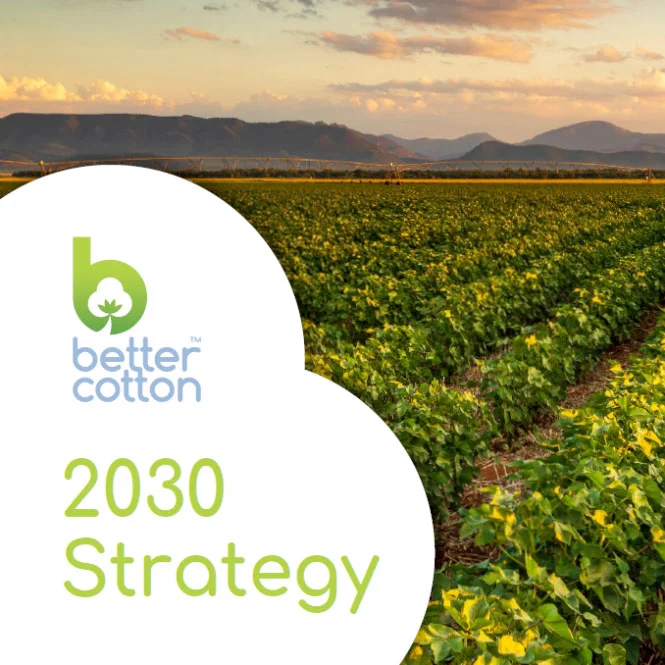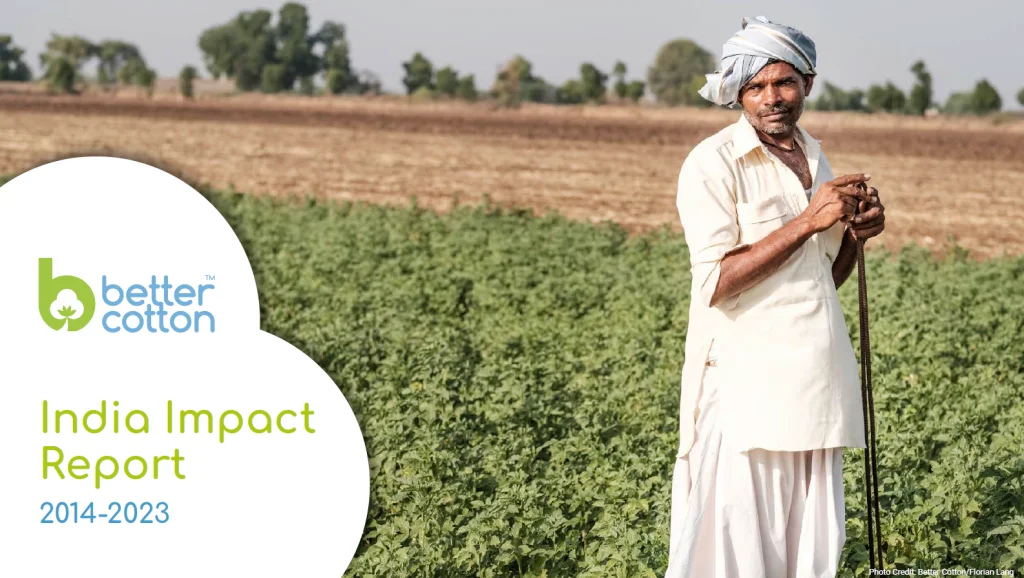- Who we are
- What we do
In just over 10 years we have become the world’s largest cotton sustainability programme. Our mission: to help cotton communities survive and thrive, while protecting and restoring the environment.
- Where we grow
Better Cotton is grown in 22 countries around the world and accounts for 22% of global cotton production. In the 2022-23 cotton season, 2.13 million licensed Better Cotton Farmers grew 5.47 million tonnes of Better Cotton.
- Our impact
- Membership
Today Better Cotton has more than 2,700 members, reflecting the breadth and diversity of the industry. Members of a global community that understands the mutual benefits of sustainable cotton farming. The moment you join, you become part of this too.
- Associate Membership
- Civil Society Membership
- Producer Organisation Membership
- Retailer and Brand Membership
- Supplier and Manufacturer Membership
- Find Members
- Member Monitoring
- Better Cotton Platform
- myBetterCotton
- Resources – Better Cotton Conference 2022
- Complaints
- Whistleblowing
- Safeguarding
- Get Involved in the Better Cotton Programme
- Thank you for contacting us
- Better Cotton’s Data Privacy Policy
- Log in
- Members’ Area
- Request for Proposals
- Better Cotton Cookie Policy
- Web Reference
- Measuring Cotton Consumption
- How to Implement the Chain of Custody Standard
- Resources – Better Cotton Conference 2023
- Certification Bodies Old
- Latest
- Sourcing
- Latest
The founding premise of Better Cotton is that a healthy sustainable future for cotton and the people that farm it is in the interests of everyone connected with it.
Let us help you find what you’re looking for
Results for {phrase} ({results_count} of {results_count_total})Displaying {results_count} results of {results_count_total}
Image credit:Martin J. Kielmann for Aid by Trade Foundation | CmiA farmers, 2019.
In the 2017-18 cotton season, more than 930,000 farmers across Africa produced approximately 560,000 metric tonnes of cotton certified in accordance with Aid by Trade Foundation’s (AbTF) Cotton made in Africa (CmiA) standard– accounting for roughly 37% of all African cotton production. The CmiA standard was successfully benchmarked against the Better Cotton Standard System in 2013, enabling CmiA-cotton to be sold as Better Cotton.
Here, Tina Stridde, Managing Director at Aid by Trade Foundation, explains how CmiA is helping farmers to overcome the most pressing challenges in cotton production.
- How is AbTF supporting smallholder cotton farmers?
The biggest challenge for smallholder farmers in Africa is lack of access to training and agricultural inputs. Together with our partners, including the Cotton Expert House Africa, we invest in field-level training to equip farmers with the knowledge and skills needed to implement efficient and sustainable cotton growing practices and strengthen the sector.
Our training and support also goes beyond sustainable agricultural practices. We also work with cotton companies and retail partners to invest in community projects focused on women’s empowerment, education, nature protection, water and hygiene, which provide broader benefits to cotton-producing communities.
In the future, digital solutions will play an increasingly important role. These include mobile SMS services that enable cotton farmers to receive weather forecasts that help them determine the best time for sowing or fertiliser application and mobile apps that identify cotton pests.
- How does AbTF’s partnership with BCI benefit cotton farmers in Africa?
The partnership provides textile companies and traders with access to a substantial amount of sustainable cotton. It also helps to boost the sale of sustainable African cotton on the world market. The associated fees AbTF receives are invested in farmer training, verification, monitoring and evaluation measures, and knowledge-sharing. Ultimately, it is the farmers who benefit by learning how to grow cotton in a more efficient and sustainable way, reducing their inputs and improving their yields and livelihoods.
- Can you tell us about any key developments or successes in the 2017-18 cotton season?
The demand for CmiA cotton from international retailers and brands increased by more than 14% in 2018, compared to 2017. AbTF also partnered with 22 cotton companies in Africa and 85 spinning mills and fabric producers worldwide. As a result, we were able to further increase the reach of the CmiA standard.
- How do you envision the future of cotton production in the countries where AbTF operates?
In recent years, we have noticed an increasing demand for sustainably produced cotton and textiles made in Africa. Consequently, countries where AbTF is active offer a unique value proposition to the market. CmiA certified cotton has the potential to lay the foundation for sustainable textiles made in Africa and create significant job opportunities for the continent, in cotton production and beyond.
- How is CmiA evolving and what key developments are on the horizon?
Since its creation in 2005, CmiA has become an internationally recognised standard for sustainable cotton production across Africa. Our vision for the future is to build on the successful development of CmiA and generate momentum to create a more sustainable and transparent textile supply chain in which all supply chain members – from Africa’s smallholder farmers to consumers worldwide – can benefit. It is now crucial for AbTF to invest in digital tools to aid supply chain transparency and help farmers access training and support more readily. We must also monitor and evaluate performance to determine the best way to help farmers continuously improve their practices, protect the environment and raise their yields.
Find out more about Cotton made in Africa.
Image credit:Martin J. Kielmann for Aid by Trade Foundation | CmiA farmers, 2019.


